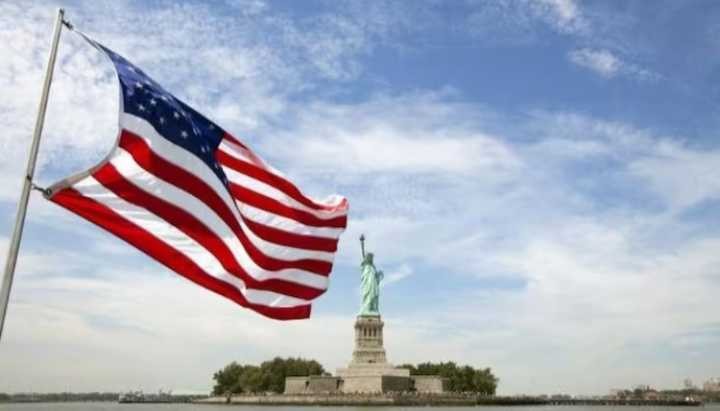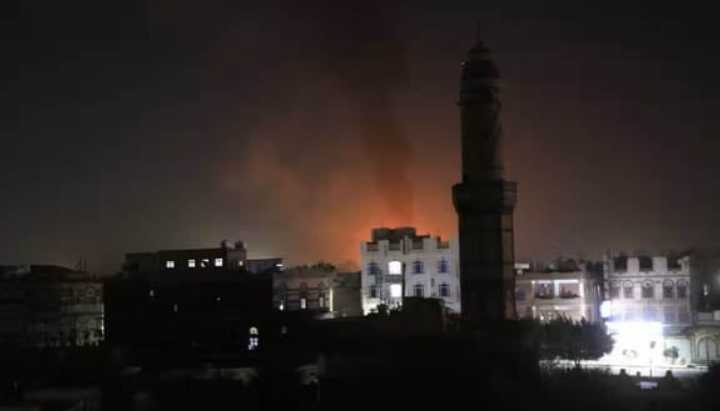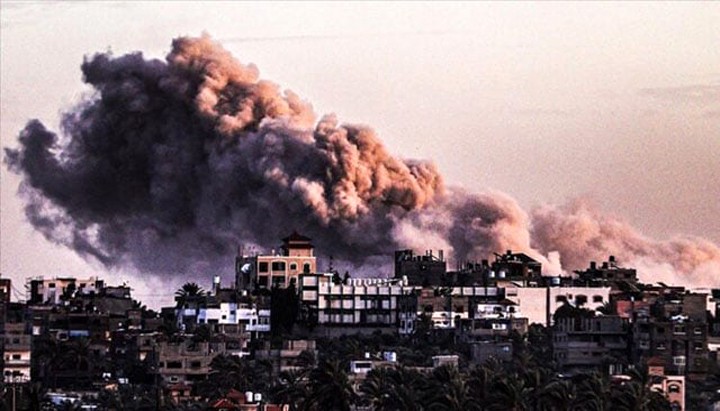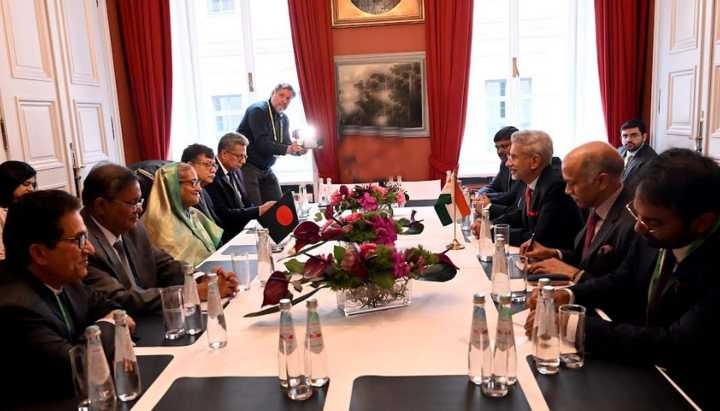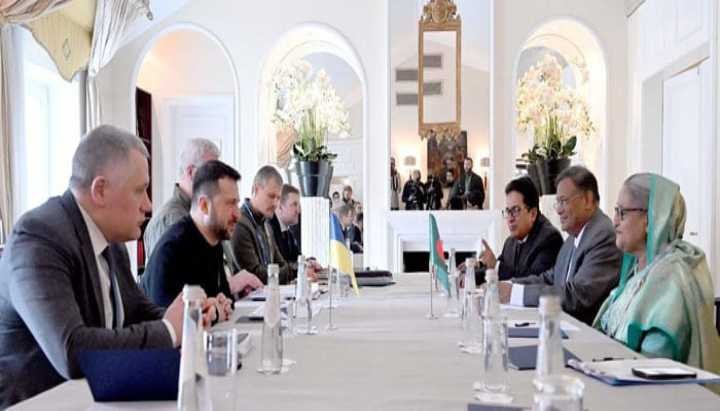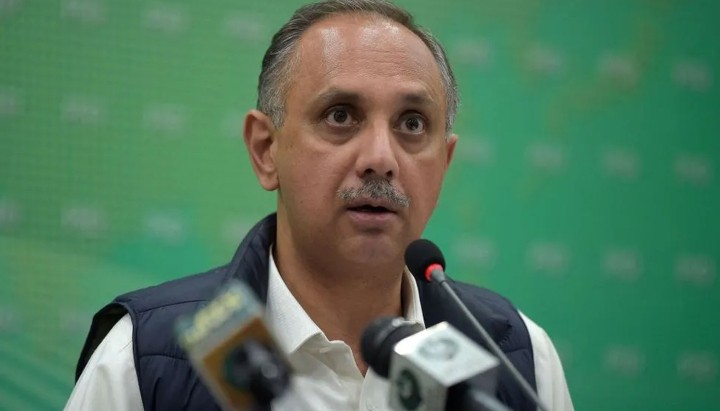The US
deep state and policy establishment seems very fond of right-wing Islamist
radicals or the 'mullahs'. They used them to bring down Iran's secular
nationalist and democratically elected Prime Minister Mohammad Mosaddegh regime
when it threatened to nationalise Iran's oil industry in the 1950s.
The
Central Intelligence Agency (CIA) used the radicals backed and sheltered by
Pakistan to torpedo Afghanistan's Saur revolution that was doing wonders for
women's emancipation and the end of clan-based feudalism.
They
backed the Pakistani military using radicals to attack India or suppress the
1971 Bengali uprising.
The US
brought down Saddam Hussein with a fake scare that he had developed weapons of
mass destruction -- the bluff was called by the BBC at some cost to its
finances. The net result -- the rise of ISIS in the vacuum caused by the
withering away of the secular though autocratic Baath Party.
The
US-sponsored Arab Spring ended Hosni Mubarak's 'police state' but propelled the
Islamic brotherhood to power. General Fateh Al Sisi has restored Egypt's
secular polity in the great military tradition of backing secularism in the
Islamic world, but US efforts to keep the Talibans out with a parachuted liberal
like Ashraf Ghani failed miserably because Washington's regional favourite -
Pakistan's military - played both sides -- supporting NATO forces with
logistics and selective intelligence while backing the Talibans.
The US
failures in fighting asymmetric campaigns across the world failed despite its
overwhelming military power, because its deep state and military-industrial
complex suffered from the: cowboy mindset' with overwhelming emphasis on force
and confused approach to politics.
In the
Islamic world, the US has always floundered because it has often found value in
radicals/ mullahs for immediate tactical gains, but then seen them emerge as
huge long-term threats.
Osama Bin
Laden's saga comes to mind but is too well known to be recounted in detail.
Fearing
that the US was about to repeat its historical mistake in Bangladesh which
India could ill afford for an awful long list of reasons, Pranab Mukherjee (
later President) fought a long verbal duel with US Secretary of State Hilary
Clinton during the unfolding of the 1/11 Minus Two saga, reminding her that
Islamic radicals in Bangladesh have to be fought by 'homegrown secular forces '
rather than US Marines or some propped up pot-bellied Bengali general.
Mukherjee
prevailed and Bangladesh got a free and fair poll that brought back the Awami
League to power. The late president has recounted this graphically in his
memoirs "The Coalition Years".
Now the US
is back to its old mischief of regime change using a mix of 'civil society'
figures, Trojan horses inside the national power structure ranging from
bureaucracy to political parties to military, and media assets.
The
trouble is the US deep state rarely conjures up new innovative operational
plans -- rather they prefer sticking to an accepted template.
In the
case of Bangladesh, the US deep state and its cohorts in the policy establishment
are following the 2013 Euromaidan model that worked so well in Ukraine. In
fact, many from the Euromaidan team are handling the Bangladesh regime change
operations. Now what works in Ukraine may not work in Bangladesh. But the
Knight charlatans in Washington and Langley often miss out on regional
peculiarities.
The latest
US human rights report is part of the regime operations in Bangladesh. It seeks
to boost the radical outfit Jamaat-e-Islami at a time when it has unleashed a
hate campaign against the Ahmediyyas.
“Leaders
and members of Jamaat-e-Islami (Jamaat), the largest Muslim political party in
the country, could not exercise their constitutional freedoms of speech and
assembly because of harassment by law enforcement authorities. Jamaat was
deregistered as a political party by the government, prohibiting candidates
from seeking office under the Jamaat name,” observes the human rights reports
on Bangladesh.
Ironically,
the state department is not in keeping with the issues that the Ahmediyya
community raised with US Bangladesh Ambassador Peter Haas about the
fundamentalist pro-Pakistan party running a boycott Ahmediyya campaign and
pressing the government to declare them as “Unislamic”.
According
to a press release issued by the Ahmediyya community, Ambassdor Haas, during
his courtesy call to some of their leaders was told about "the serious
concerns over the Jamaat-sponsored hate campaign and the highly communal
statement from BNP’s secretary general Mirza Fakhrul Islam Alamgir calling the
attempt to hold the Ahmediyya rally controversial .
Days after
the attack, Jamaat acting Secretary General Maulana ATM Masum issued a
statement on March 5, asking the government to officially declare the Ahmadiyya
community “non-Muslim”.
Moreover,
an ardent Jamaat-backed Twitter handle named Basherkella posted a series of
tweets asking people to boycott Ahmediyya, in clear evidence of a vicious hate
campaign by the minority community.
The US
human rights report also projects controversial rights body Odhikar as an
“independent body”, oblivious to the fact that its founder Adilur Rahman Khan
Shuvro was a deputy attorney general during the BNP-JAMAAT coalition government
(2001-06).
'Odhikar'
has been the moving force behind human rights data faking like blowing up the
casualty figures during the 2013 police crackdown on ardent hardliners from
Hefazat-e-Islam, then joined by opposition parties including Jamaat who even
vowed to siege the capital to bring in Sariah Law, which was exposed by
national media.
The UN
ended up with eggs on its face when its reports contained names of
hail-and-hearty Indian insurgents in the Bangladesh country report on Enforced
disappearances -- again based on data fed by Odhikar and its fraternal
organisations.
Moreover,
the US report seems to quote frequently about Jamaat’s key ally, Bangladesh
Nationalist Party’s (BNP), claims centering shrinking freedom of speech and
freedom of assembly, but ignores the party’s series of attacks on the country’s
press and role in instigating communal violence.
This has
provoked sharp reactions from Awami League leaders and their concerns are
valid. But what top civil society personality Sultana Kamal has approached will
hopefully compel Washington into some kind of introspection.
She said
in an interview and I quote:
"This
report concerns the Jamat- e-Islami (Jamaat) Bangladesh, a political party
which has a proven record of collaborating with the Pakistani Military Junta in
1971 in the acts of Genocide, abduction, loot, arson, rape and other kinds of
violence against women.
It is
an established fact that its military wings in the name of Al-Badar and
Al-Shams were responsible for the intellectual killings between December 10 and
14. With due respect, I would like to submit that scanning through the media,
Pakistani government communications and international reports on the Bangladesh
genocide of 1971, one can not miss seeing what the role of Jamaat was during
the nine months of massacre of Bangladesh from March to December.
It was
through a process of law that Jamaat was de- registered. As a freedom fighter,
I would like to also ask whether the Nazi party be allowed to function in
Germany?
I have
no idea on what basis the report states the war crimes trial in Bangladesh was
flawed. Since I have not seen any clear explanation as to why some quarters
make such remark about the war crimes trial, I prefer not to comment. However,
my experience with the tribunal was that the accused's right to self defence
was fully respected."
Now if the
US wants us to believe Zillur Rahman’s Center for Governance Studies is a more
credible institution than those helmed by Sultana Kamal, they are making a vain
effort. We know how the ISI funded his so-called glorified interview of war
criminals, along with the self-confessed killer of Sheikh Mujibur Rahman, with
one reportedly recorded in Pakistan, and how they then passed him on to the
Chinese who took care of his TV show. Now the US finds value in him because he
is agreeable, like a few others, to play a role in facilitating regime change
in Bangladesh.
"The
US agenda of demeaning the Hasina government is so preponderant that it goes
all out to support a dangerous group like Jamaat which not only joined the
Pakistani army in 1971 in perpetrating horrible atrocities. They nearly killed
me in 2001 because my liberal views were unacceptable to Jamaat," former
actress-playwright and minister Tarana Halim told a media outlet recently.
Halim, now
Central Executive Member of the Awami League, said the West pitches for women's
rights and human rights and then in the same breath upholds a group like
Jamaat-e-Islami which is determined to impose Shariat law and curb gender
rights in Bangladesh.
"The Western hypocrisy is so palpable and annoying. How can they get away
with this," Awami League women leader Shahanaz Parvin Dolly told
Bangladesh media.
A joint
secretary at the Jubo Mohila League until the recent reorganisation of party
committees, Dolly said the West talks of reconciliation in Bangladesh.
"That is impossible. How can we accommodate Jamaat-e-Islami, which opposed
our freedom struggle and sided with Pakistan's occupation army to commit
horrible brutalities on our people, especially against our women? As a Bengali
woman, I will never accept their attempt to curb women's rights. We can't allow
our country to be another Afghanistan," said Dolly.
According to the country’s eminent rights activists, the BNP’s top leadership,
Tarique Rahman was convicted in cases of money laundering and holding a strong
nexus with proscribed terror outfits during their rule in power back in 2001 to
2006. Tarique is now leading a fugitive life in London, who left the country
having submitted an undertaking.
Under the rule of Tarique Rahman, Bangladesh became a hot bed for transnational
terrorists while militants enjoyed a free reign with the highest state
patronage, while a nefarious attempt known as the 21st grenade attack was
executed in collusion with radicals that then opposition leader Sheikh Hasina
has narrowly escaped.
Moreover, the absence of BNP’s threat of replication of the 1975-style
assassination, calling out rights activists as AL sympathisers, and warning of
capturing state power through violence — all that made the report ring hollow,
according to experts.
So, from overthrowing the democratically elected Prime Minister Mohammad
Mosaddegh in Iran in the 1950s to using hardcore Islamists to fight the Afghan
Jihad to backing the most regressive regimes of Saudi Arabia, the US has always
found radical forces as ready-to-use material for regime change operations to
defeat progressive forces in the Islamic world.
For Washington during the Cold War, Arab or Persian nationalists like Gamal
Nasser, Saddam Hussein or Mossadegh were the principal enemy. On occasions, the
script has gone wrong for Washington when volcanic events like the Islamic
revolution unfolded in Iran in 1979 or when the Taliban took over Afghanistan
in 1996.
Those like
us who covered the 1971 Bangladesh Liberation War closely and the events that
followed find a continuity in US policy – first in backing the bloodthirsty
Pakistan army and followed by Washington's covert backing to the brutal 1975
coup. For the Nixon-Kissinger duo, Bangabandhu Sheikh Mujibur Rahman – the
founding father of the nation – was a "Soviet-Indian proxy". So
Washington's dislike for Arab nationalists like Nasser easily translated into
distrust of Bangali nationalists like Mujib and Sheikh Hasina.
So this ardent US defence of Jamaat in the State Department report proves a
striking continuity in American policy of backing pro-Pakistan forces in
Bangladesh. The US always had problems with passionate nationalists like Indira
Gandhi, Sheikh Mujibur Rahman or Gamal Nasser. Regressive regimes like Saudi
Arabia or Pakistan have always fitted Washington's bill by being too willing to
play by Western strategic interests.
Not to
mention a slew of earlier reports by the country’s leading outlets that laid
bare how Jamaat's former money man Mir Quasem Ali schemed to foil the war crimes
trial with a $25 million deal with one of the most influential US lobby firms,
Cassidy & Associates, for engaging with the US government and the
Bangladesh government "to protect his interest".
Sukharanjan
Dasgupta is a veteran columnist and author of "Midnight Massacre" on
the 1975 Bangladesh coup. As chief correspondent of Anandabazar Patrika, he
reported on the Liberation War by gathering information from freedom fighters
in Bangladesh.
Sukharanjan
Dasgupta is a veteran columnist and author of "Midnight Massacre" on
the 1975 Bangladesh coup. As chief correspondent of Anandabazar Patrika, he
reported on the Liberation War by gathering information from freedom fighters
in Bangladesh.
Source: IndiaToday


